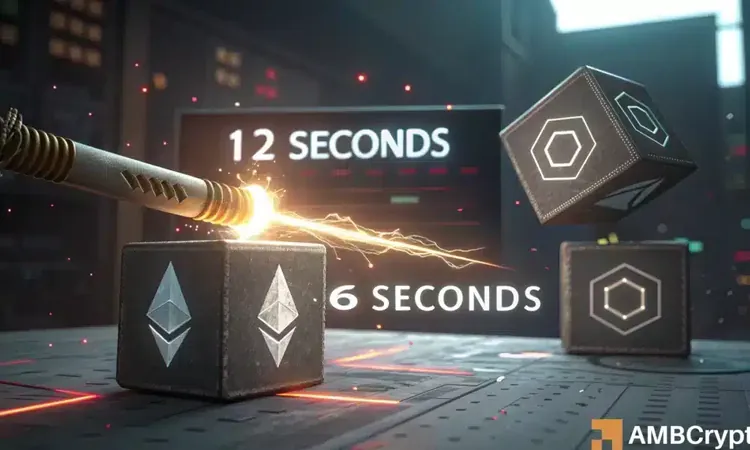
Ethereum's Bold Move: Will Halving Block Times Revolutionize DeFi?
2025-06-24
Author: William
Ethereum's Game-Changing Proposal
Ethereum is on the verge of a potential breakthrough! In a daring move to enhance its DeFi ecosystem, developers have proposed slashing block times from 12 seconds to just 6 seconds. This ambitious plan, detailed in the upcoming Glamsterdam upgrade's EIP-7782, aims to streamline transaction confirmations and create tighter feedback loops.
Transformative Changes Ahead
With the recent Pectra upgrade already in play, 2025 is poised to be a watershed year for Ethereum. But is this merely a technical adjustment, or does it signal a major leap forward for the blockchain? Advocates are dubbing this slot-time reduction as Ethereum’s most significant upgrade yet, and they might just be onto something.
Faster Transactions Without Compromising Capacity
By halving the block proposal time, Ethereum will enable quicker transaction processing without altering gas limits or the number of transactions handled. Imagine a scenario where, in one hour, Ethereum could produce 600 blocks instead of 300. While the gas limit remains unchanged, faster block times could lead to more predictable fees.
Potential for Lower Transaction Costs
With transactions confirmed more swiftly, users may not have to overpay for faster confirmations—resulting in potentially lower average transaction costs. This could invigorate network engagement at a time when demand for layer-1 (L1) blockchains is reaching new heights.
Revolutionizing DeFi Experiences
Ethereum isn’t just any blockchain; it’s the powerhouse behind DeFi. The pressing question is: Could this slot-time reduction transform DeFi as much as it enhances user experience? Currently, for operations like trading or lending on platforms such as Uniswap, users often wait around 12 seconds for confirmations. In a volatile market, this brief delay can lead to significant price fluctuations.
Quicker Transactions, Better Trading Outcomes
Reducing the wait to 6 seconds means Ethereum can respond more promptly, keeping prices synchronized and yielding better execution for users. The implications are massive—more efficient trading could attract deeper liquidity, ultimately encouraging more users to stake ETH and amplify demand at a protocol level.
A Structural Shift for Long-Term Gains
So, while halving the block time might seem like a minor adjustment, it holds profound implications for Ethereum's market dynamics. Faster blocks can lead to tighter market conditions, enhanced user experiences, and stronger incentives to hold and utilize ETH. This move signifies not just a tweak, but a structural redesign aimed at solidifying Ethereum’s foundation and driving on-chain activity to unprecedented levels.









 Brasil (PT)
Brasil (PT)
 Canada (EN)
Canada (EN)
 Chile (ES)
Chile (ES)
 Česko (CS)
Česko (CS)
 대한민국 (KO)
대한민국 (KO)
 España (ES)
España (ES)
 France (FR)
France (FR)
 Hong Kong (EN)
Hong Kong (EN)
 Italia (IT)
Italia (IT)
 日本 (JA)
日本 (JA)
 Magyarország (HU)
Magyarország (HU)
 Norge (NO)
Norge (NO)
 Polska (PL)
Polska (PL)
 Schweiz (DE)
Schweiz (DE)
 Singapore (EN)
Singapore (EN)
 Sverige (SV)
Sverige (SV)
 Suomi (FI)
Suomi (FI)
 Türkiye (TR)
Türkiye (TR)
 الإمارات العربية المتحدة (AR)
الإمارات العربية المتحدة (AR)